- Home
- Brian S. Wheeler
Words Burned to Flame
Words Burned to Flame Read online
Words Burned to Flame
Brian S. Wheeler
Flatland Fiction thanks you for your purchase of this ebook. This ebook remains the copyrighted property of the author and may not be reproduced, scanned, or distributed for any commercial or non-commercial use without permission from the author. Quotes used in reviews are the exception. No alteration of content is allowed. If you enjoy this ebook, Flatland Fiction encourages you to send us a review at [email protected]. Unless otherwise instructed, Flatland Fiction reserves the right to post such reviews online.
Your support and respect for the property of this author is appreciated.
This book is a work of fiction and any resemblance to persons, living or dead, or places, events or locales is purely coincidental. The characters are productions of the author’s imagination and used fictitiously.
Copyright © 2016 by Brian S. Wheeler
For Kate.
If you enjoy this story, please consider purchasing one of the following novels available at your favorite distributor of ebooks. Flatland Fiction welcomes your feedback at [email protected].
Mr. Hancock’s Signature
The dead walk in Monteray. The corpse of a nearly forgotten farmer named Hancock arrives via train. Ian Washington remembers Mr. Hancock and vows to return the body home. Yet Mr. Hancock's body will not rest while Ian works to reopen a cemetery, and the corpse found each morning upon the doorstep forces the town to choose between the isolation of their fear or the hope of their fellowship.
The Sisters Will Dance
Blaine Woosely claws his way back to the living. He has cleaned his blood of his addiction, and an unexpected, family farm home rewards his efforts. Only the country acres isolate Blaine when a sharp-toothed monster hunts to bring Blaine back to the dark. The sad history of Blaine's blood brings magic to the country home's new master, but in the end, only Blaine himself can break his chains.
Fallen Stardust
A boy, an outcast and an alien must find salvation in a world of ruin. Samuel must find a medicine to cure the fever ravaging his village. Markus must find the motive that murdered those he loved. And an angel must find a future in a city crumbled into debris. But something lurks beneath the wasted world, and waking it may doom what little of humanity survives.
The Light Floats Slowly
Hugh Simms looks to find hope amid the stars when he fails to find any on Earth. Heartbroken by the loss of his only love, Hugh loads his great spaceship with ash and glass before launching his Starchaser into the cosmos. Miraculously, that spaceship finds an alien civilization in the vast dark, and Hugh might deliver that civilization the salvation he failed to deliver to the Earth.
Vanity and Stars
Rise to grasp new worlds, and fall with the tragedy of human and alien frailty. These ten stories underline the potential seeded throughout the galaxy, while never denying that humankind’s flaws will surely tarnish the stars. With the vain and the foolish, buckle into the rocket seat and hold a breath while the cosmos unfolds.
Contents
Chapter 1 – Return of the Fire-Starter
Chapter 2 – Paper Swans
Chapter 3 – A Town Composed of Bone
Chapter 4 – The Ruin and the Rot
Chapter 5 – Vines of Blooming Bone
Chapter 6 – Nooses and Ragdolls
Chapter 7 – Darker Powers
Chapter 8 – The Burn
About the Writer
Other Stories at Flatland Fiction
Words Burned to Flame
Chapter 1 – Return of the Fire-Starter
The rusting pickup coughing in the oncoming lane flashes its headlights twice to alert me that that the village police still hide behind the grain elevator along the highway, hoping to catch travellers who mistakenly believe Addieville’s wind-damaged roofs and crooked homes don’t deserve a driver’s courtesy to follow the posted speed limit. I peek out of the passenger window and see the unmarked cruiser, but I’m careful to avoid making eye contact with the officer sitting behind the steering wheel. I was born with a unique face, an ugly face. It’s a foolish notion, but after nearly thirty years, I’m still afraid that I might be recognized as that boy who burned down half the town when I helped Mr. Turner set fire to his books.
I don’t spot a soul as my little car rolls into Addieville. I give up counting the lawnmowers and bicycles crowding one front yard, all of them with cardboard signs holding a spray-painted price. Plastic slides and crooked swing-sets crowd another lawn, surrounded by the wooden shapes of soldiers kneeling in prayer, of smoking cowboys, or of boys urinating on the grass. I read no trespassing signs tied to chain-link fences warning of guard dogs. I see wheelchairs and sofas abandoned on front porches. I see plastic statues of Mother Mary and of Jesus perched on the hoods of tire-less cars and trucks. But I don’t see any people. I don’t spot a single resident peeking through window curtains, not a single child throwing a tennis ball against a garage.
I wonder if a single toolshed or home has been rebuilt, or even repaired, since the day Mr. Turner burned his library. Perhaps the curse Mr. Turner leveled on the town as all those pages burned still chokes Addieville. I wonder if the residents of Addieville have become the zombies Mr. Turner said they would.
The first person I spot wears a reflective, orange vest in the middle of Addieville’s one intersection with enough traffic to deserve a red, blinking light. The men of the veterans’ lodge evidently still work that intersection to fundraise for loose change. I proffer a crisp dollar bill, and the old gentleman’s eyes peer steadily into my ugly face, as if he’s on the verge of recognizing my oversized ears and crooked smile. A chill runs up my spine. Does some feature beneath my graying, patchy beard remind him of the boy who helped toss so much fire into the air that summer before Declan Turner’s death the following winter?
I sigh with relief when I see the present day snap back into the aging man’s eyes. He offers me a red poppy, and he doesn’t say a word as I accept the token.
I clear my throat. “Got any idea where I might find a strong cup of coffee?”
The old man stares at me, as if he’s shocked, as if he’s forgotten that people from other parts of the world still enjoy occasional communication.
“We don’t have any of those fancy coffee shops you might find further down the highway. You’ll have better luck driving on down the highway to Miller Junction.”
“You have a gas station?”
“We have one, but it doesn’t sell anything but gas.”
“So there’s nowhere to get a caffeine fix?”
The man thinks. He does so slowly, but he thinks.
“I suppose you might have some luck in Muehler’s Grocery. They might still sell Styrofoam cups of coffee at the back deli counter.”
Thirty years isn’t enough time to blur my memory of Muehler’s Grocery, and my hands feel like they’re operating on autopilot as I take the only turn required to drift into the parking lot found behind the corner grocery store. I entertain the thought that I might’ve slipped through some kind of hole in time. The few vehicles in the lot are all models more than twenty-five years old – big and boxy machines predating the time when cars and trucks gained aerodynamic curves. I’ve never felt so excited to notice rust on wheel wells and fenders, for the corrosion assures me I’ve not become lost in time. It’s easy to reminisce about my boyhood as I exit my car. The sale prices written with soap on the store’s front windows match those offered decades ago, and the color coupons taped on the front door all date back to those years when a boneshaker named Declan Turner still shopped the aisles for gin and tomato juice.
There’s no flashing sign saying the store’s open, but neither is there any posting cla
iming it’s closed, so I swallow a little courage and push through the front door. The young woman chomping gum at a register swallows when she sees me, and I hope her gum hasn’t lodged in the middle of her long neck to choke her. My face grows uglier as I age, with the mass that’s taken residence on my nose, with the bulbs of tissue swelling just below my skin that twist at my eyes and destroy the symmetry of my features. I suffer from the deformities that pained Mr. Turner, and so I might as well return to this town to claim his magic.
Memory continues to make me swoon. The aisles remain as narrow as I remember, with baked beans, canned soups and oatmeal canisters shoved into the store’s limited space. I can’t help but pause at the magazine rack, where the few remaining television guides still advertise mustached detective shows and soap operas that have long faded from syndication. The glossy covers of the newsmagazines show celebrities and politicians history has passed, and the lifestyle publications tell of diet fads and home décor choices long out of fashion. Even the paperback books sold in Muehler’s Grocery are all dusty guides to good Christian living written by evangelicals who long ago accepted their invitations through the pearly gates.
Declan Turner told me the day we burned his books that Muehler’s Grocery store would be the only place a resident might find reading material after the community turned my father’s library into a municipal garage, and he told me the fare would turn as stale as the English muffins the store proffered. Declan Turner claimed he had a knack for peeking into the future, and what I’ve seen of my boyhood hometown gives me no reason to think that Addieville’s turned into anything other than bone during my absence.
If I remember correctly, the deli counter is located at the back of the market, so I drift along a freezer of TV dinners, not daring to glance at their expiration dates, and move deeper into the store. My feet plant me to a stop when I stand between the bread and canned soft drink aisles. A sense of vertigo spins in my ear as I recall standing on that very linoleum square all those years ago. I close my eyes, and I hear the sirens of those fire trucks shrieking down the street. I can almost see the engines speeding down the highway outside the store’s front windows, chasing the fires fed by those words I helped Mr. Turner deliver to the wind.
An eddy of time, a swirl of memory, grips me. I’m standing on that square of linoleum where I attempted to hide from the consequences of that fire I ignited with Mr. Turner. I failed to turn invisible then, and I fail to turn invisible now.
“You looking for anything particular?
A tall, slender man dressed in a butcher’s white frock squints at me. Could he be the father of a classmate from my fifth grade school year, someone who might see that young boy who hid in store as his fire spread through Addieville, someone who knew of me well enough then to recognize me now?
“All I have is Cajun turkey today. It’s the only thing the boys working in Raycamp’s implement repair eat, and it’s the only thing I stock, seeing that only the boys at Raycamp’s come around for lunch anymore.”
“You got any coffee?”
The man grunts. “Don’t have any fancy creamer for it.”
“You have sugar?”
“Yeah, we still have some of that.”
The man turns his back to me just long enough to pour steaming coffee into a paper cup from a bubbling percolator. Sugar comes in a glass canister, and there’s not a pink packet of artificial sweetener to be seen. The coffee burns my tongue, but it does shake the cobwebs out of my mind.
“How much I owe you?”
The man shakes his head. “Don’t worry about it. We only brew the stuff to entice people inside to try the Cajun turkey.”
“Does it work?”
“Nope, but if you want to give something, then maybe you’ll think about buying something else from the shelves.”
I nod my thanks and grab a sealed pastry from the snack aisle and a picture postcard from a stand located near the register. The young woman with the long neck doesn’t look up from the counter as her fingers manually enter the cost of each item into the register. She doesn’t want to look at my misshapen head. I don’t take any offense at it. I’ve had a lifetime to acclimate to her kind of response. So I scan the picture postcard and chuckle at the photographs of hard working coal miners, and of farmers guiding their horse-drawn plows through the fields. For not the first time, I wonder just when, exactly, Addieville drew its last healthy breath. I never saw any coalminers or horses when I was a boy in town. Stories old men and women told of a time when Addieville owned a purpose might as well have been fable. I save the girl any further thought of my ugliness by hurrying out the door without stopping to gather my change.
Back behind my wheel, I idly sit and sip through my coffee. I’m in no hurry. It would only take me a few minutes to drive through all of Addieville. I’ve got plenty of time to slowly visit my old haunts. I’ve got plenty of time before I search for Mr. Turner’s tiles and see if I might finish what he started so long ago.
* * * * *

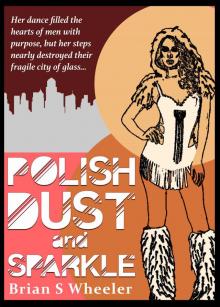 Polish, Dust and Sparkle
Polish, Dust and Sparkle Old Hunters on the New Wild
Old Hunters on the New Wild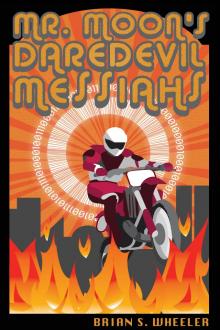 Mr. Moon's Daredevil Messiahs
Mr. Moon's Daredevil Messiahs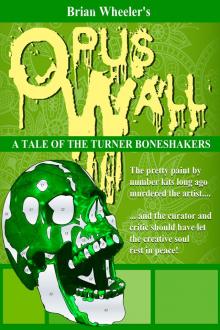 Opus Wall
Opus Wall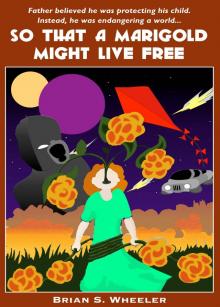 So That a Marigold Might Live Free
So That a Marigold Might Live Free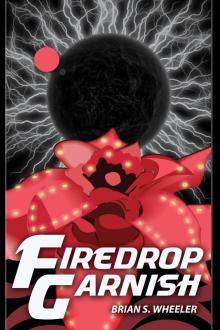 Firedrop Garnish
Firedrop Garnish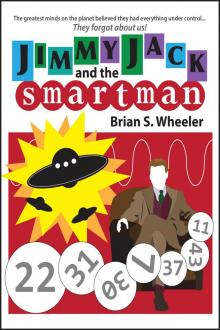 Jimmy Jack and the Smartman
Jimmy Jack and the Smartman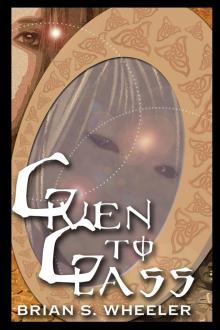 Given to Glass
Given to Glass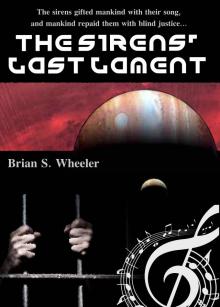 The Sirens' Last Lament
The Sirens' Last Lament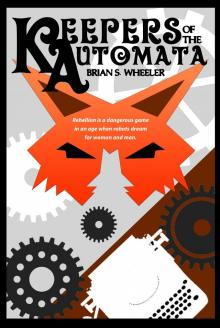 Keepers of the Automata
Keepers of the Automata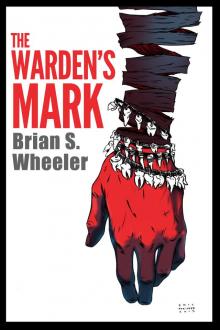 The Warden's Mark
The Warden's Mark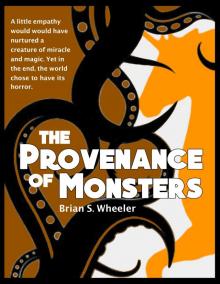 The Provenance of Monsters
The Provenance of Monsters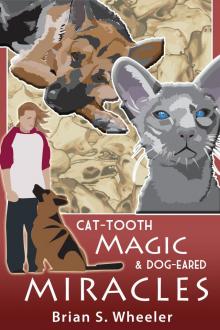 Cat-Tooth Magic and Dog-Eared Miracles
Cat-Tooth Magic and Dog-Eared Miracles Heritage and Shimmer
Heritage and Shimmer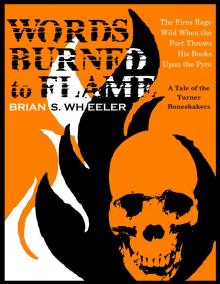 Words Burned to Flame
Words Burned to Flame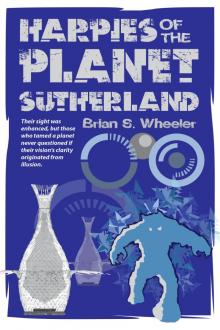 Harpies of Planet Sutherland
Harpies of Planet Sutherland The House on Maple Street
The House on Maple Street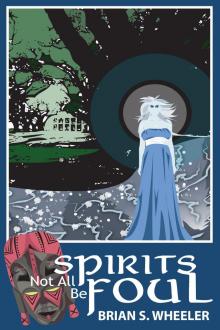 Not All Spirits Be Foul
Not All Spirits Be Foul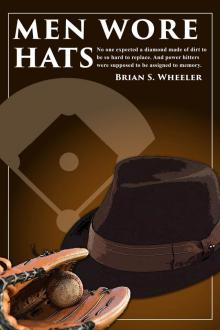 Men Wore Hats
Men Wore Hats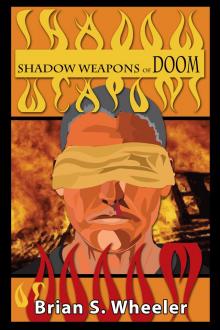 Shadow Weapons of Doom
Shadow Weapons of Doom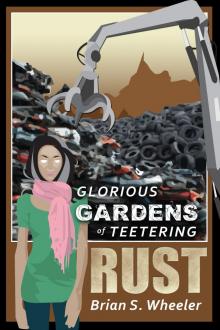 Glorious Gardens of Teetering Rust
Glorious Gardens of Teetering Rust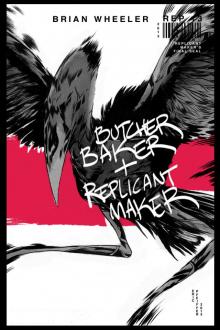 Butcher, Baker and Replicant Maker
Butcher, Baker and Replicant Maker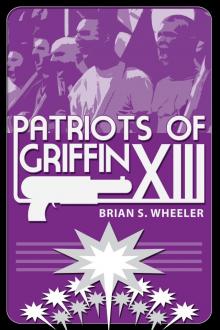 Patriots of Griffin XIII
Patriots of Griffin XIII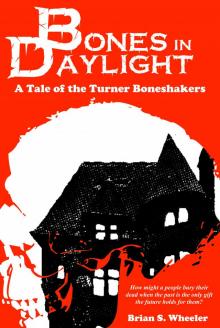 Bones in Daylight
Bones in Daylight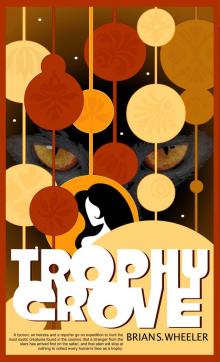 Trophy Grove
Trophy Grove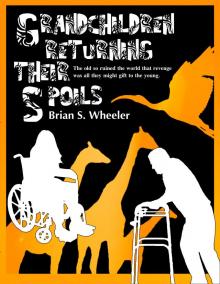 Grandchildren Returning Their Spoils
Grandchildren Returning Their Spoils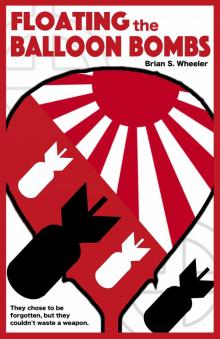 Floating the Balloon Bombs
Floating the Balloon Bombs Starlight, Starbright
Starlight, Starbright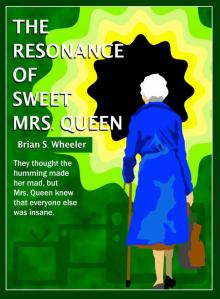 The Resonance of Sweet Mrs. Queen
The Resonance of Sweet Mrs. Queen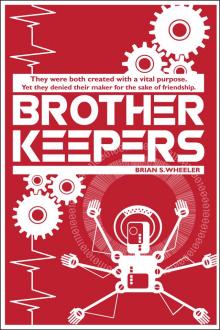 Brother Keepers
Brother Keepers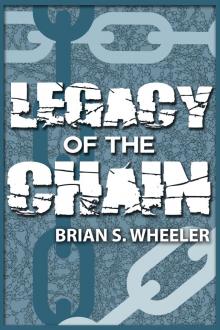 Legacy of the Chain
Legacy of the Chain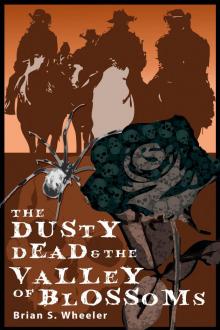 The Dusty Dead in the Valley of the Blossoms
The Dusty Dead in the Valley of the Blossoms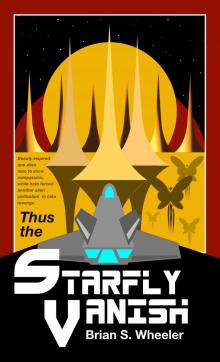 Thus the Starfly Vanish
Thus the Starfly Vanish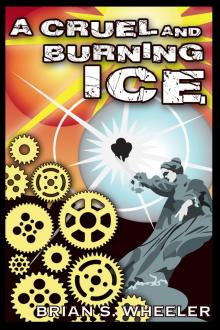 A Cruel and Burning Ice
A Cruel and Burning Ice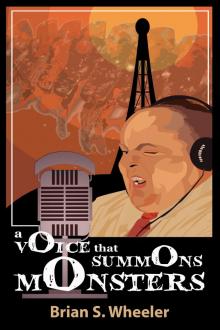 A Voice That Summons Monsters
A Voice That Summons Monsters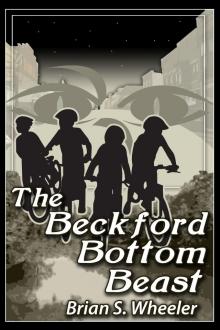 The Beckford Bottom Beast
The Beckford Bottom Beast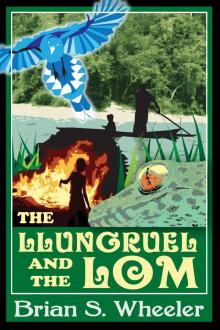 The Llungruel and the Lom
The Llungruel and the Lom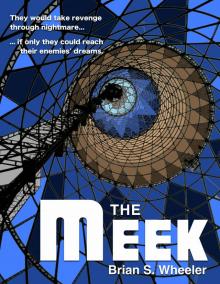 The Meek
The Meek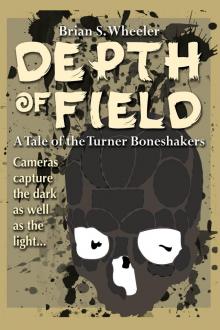 Depth of Field
Depth of Field Mary, in Need of Belle
Mary, in Need of Belle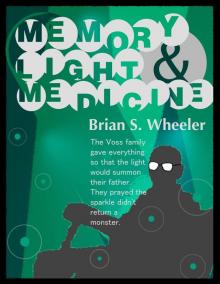 Memory, Light & Medicine
Memory, Light & Medicine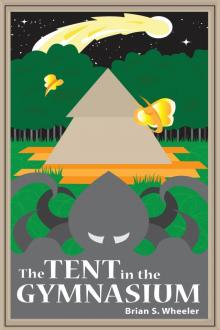 The Tent in the Gymnasium
The Tent in the Gymnasium Rooms Without Furniture
Rooms Without Furniture A Handicap of Shades
A Handicap of Shades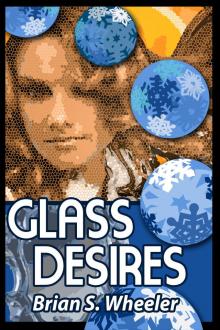 Glass Desires
Glass Desires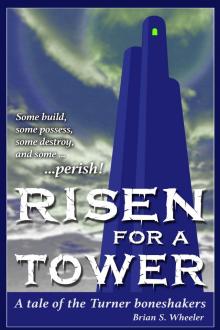 Risen for a Tower
Risen for a Tower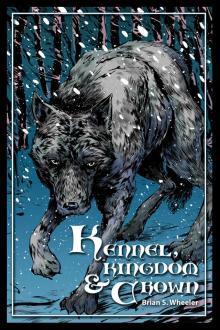 Kennel, Kingdom and Crown
Kennel, Kingdom and Crown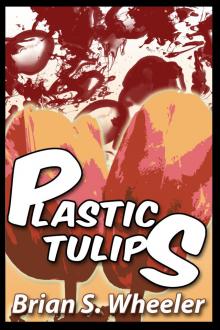 Plastic Tulips
Plastic Tulips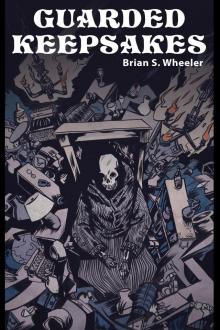 Guarded Keepsakes
Guarded Keepsakes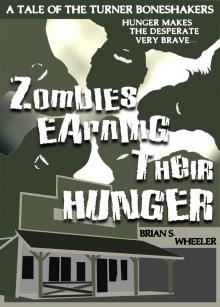 Zombies Earning Their Hunger
Zombies Earning Their Hunger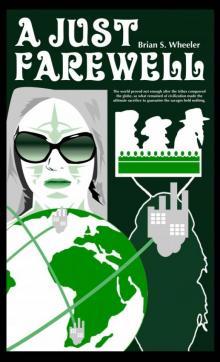 A Just Farewell
A Just Farewell